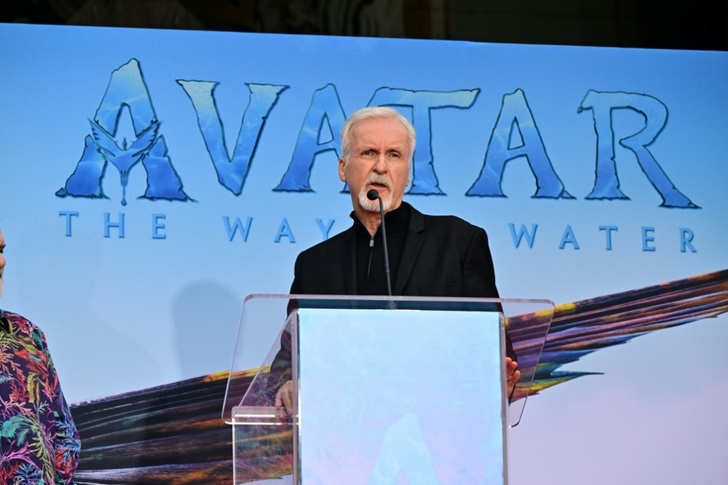The huge success of "Avatar: The Way of Water," James Cameron's sequel which is approaching $2 billion at the global box office, proves that "movies are back with a resurgence" after the pandemic, the Canadian director said.
"We've had a year to see that this resurgence isn't just a fluke, or just one film," Cameron told AFP this week in Los Angeles, pointing to other recent mega-grossing blockbusters including "Top Gun: Maverick" and "Black Panther: Wakanda Forever."
"You've seen a pattern," added Cameron, after having his handprints immortalized in cement at Hollywood's famous TCL Chinese Theatre.
"Avatar: The Way of Water" came 13 years after the original film, which remains the highest grossing movie of all time, amassing $2.9 billion at the global box office.
Even if the sequel -- which transplants the 3D action to a new underwater setting -- does not quite scale those heights, it is already the seventh biggest film of all time by ticket sales.

In the United States alone some 500 theaters have disappeared since the arrival of Covid-19 forced costly closures, according to the National Association of Theater Owners.
Cineworld -- the British group that owns America's second-largest theater chain Regal Cinemas -- is in the midst of restructuring after filing for bankruptcy last year.
But Cameron, the director of "Titanic," "The Terminator" and many more hits, remains firmly convinced about the viability and adaptability of cinema in the future.
"I don't think movies are ever gonna die," he said.
"We need this as culture, as a society. We need to go into these theaters into these big large spaces with hundreds of strangers."
- 'Pseudo-intellectual' critics -
At 68, the director nevertheless recognizes that habits have changed.

"I'm also seeing a pattern of the type of film that people will go to see in a movie theater and the type that they won't. And so streaming still has a very, very rich and important place," said Cameron.
His "Avatar" sequel sees the blue Na'vi of Pandora fighting off yet another invasion of their homeland by resource-hungry humans.
The storyline allows Cameron, who is famously passionate about underwater exploration and is a vegetarian, to expand on the franchise's themes: protecting nature, and the threats posed to the environment by imperialism and capitalism.

It left this week's Golden Globes empty-handed, unlike its 2009 predecessor which won best drama and best director for Cameron.
It was not even nominated by Cameron's peers, the Directors Guild of America, for their own annual awards.
"That's in the nature of art. You can't please everybody," shrugged Cameron.
Critics "think a certain kind of earnestness, where you wear your heart on your sleeve, is unsophisticated or naive," he said.
"To me, that's a little bit of a pseudo-intellectual perspective."
- 'Hope in Ukraine' -
Cameron pointed to the film's massive international appeal, citing data from its distributor that the sequel is "approaching being the number one film in the history of Ukraine."

"Giving hope in Ukraine right now, that made the whole thing worthwhile. Not the money. Not the awards."
rfo/amz/des
© Agence France-Presse
Your content is great. However, if any of the content contained herein violates any rights of yours, including those of copyright, please contact us immediately by e-mail at media[@]kissrpr.com.
Source: Story.KISSPR.com

